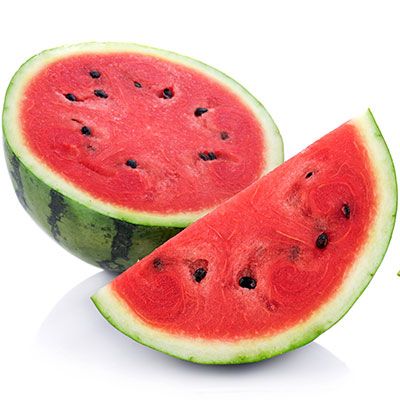
- Appearance: Watermelon, also known as “water melon,” is a large, round fruit with smooth, green skin and juicy, pink or red flesh. Grown in the lush fields of Nashik, Maharashtra, India, watermelons come in various sizes, ranging from small to large, with some specimens reaching impressive sizes.
- Taste: Watermelon is known for its refreshing sweetness and juicy texture. Watermelon offers a refreshing and sweet taste, with a high water content that gives it its characteristic juiciness. The flesh of the fruit is crisp and succulent, providing a burst of flavor with each bite.
- Types: Seedless and seeded varieties are available, with common types including Crimson Sweet and Seedless Watermelon. Watermelons come in different varieties, including traditional red-fleshed watermelons and less common green-fleshed varieties. Regardless of the type, watermelons are prized for their sweet taste and hydrating properties.
- Uses: Eat fresh, juiced, or blended into smoothies. The rind can also be pickled or candied. Watermelon can be enjoyed in numerous ways. It is commonly consumed fresh as a cooling snack during hot summer days. Sliced watermelon is a popular addition to fruit salads, and the juice can be extracted for refreshing beverages. Watermelon can also be used in smoothies, sorbets, and even savory dishes like salads and salsas.
- Benefits of Eating: Watermelon is not only delicious but also nutritious. It is low in calories and high in water content, making it a hydrating and refreshing choice. Watermelon is rich in vitamins A and C, as well as antioxidants like lycopene, which may help protect against certain diseases. Consuming watermelon regularly as part of a balanced diet can contribute to overall hydration, skin health, and immune function.
